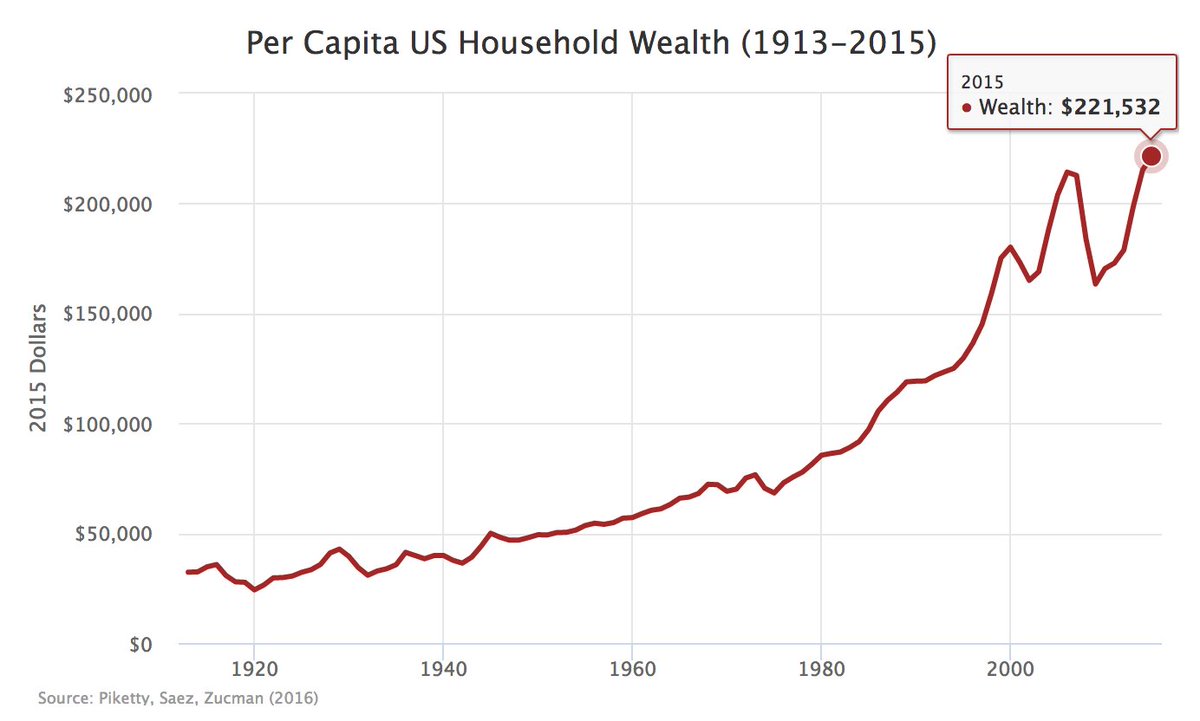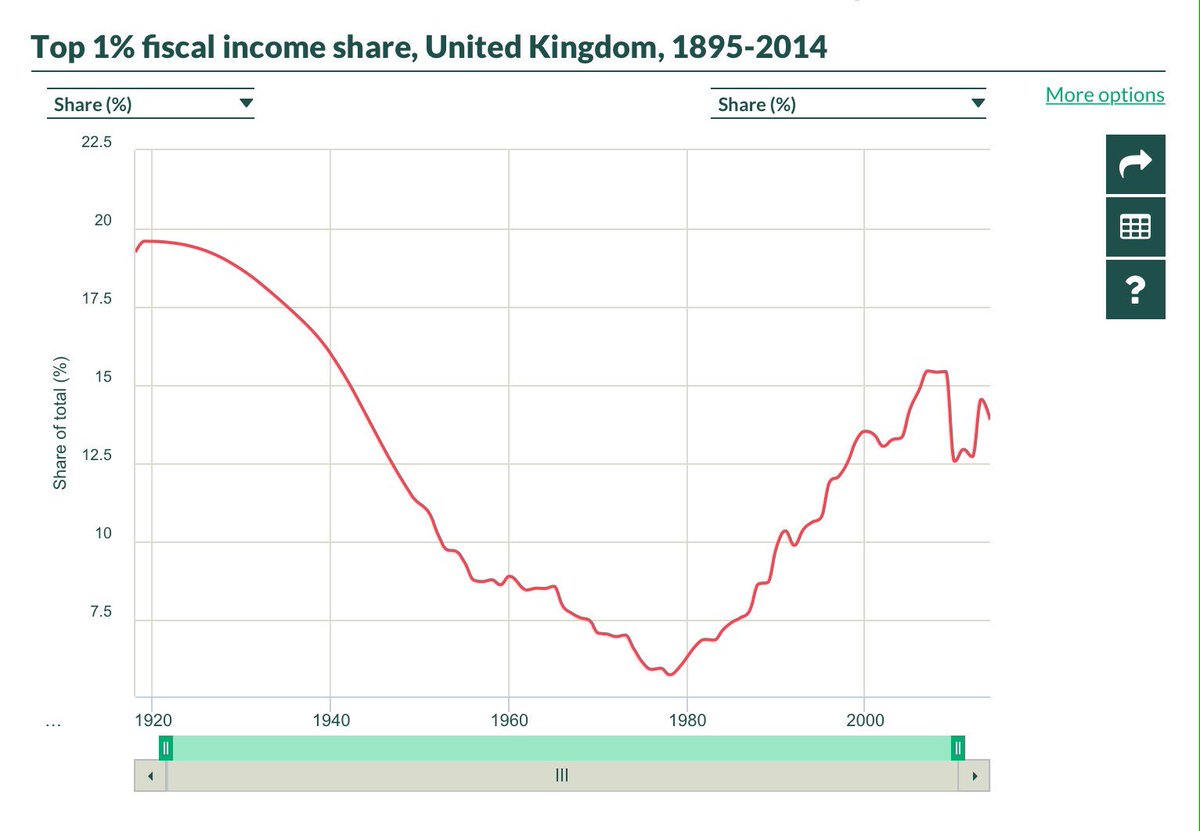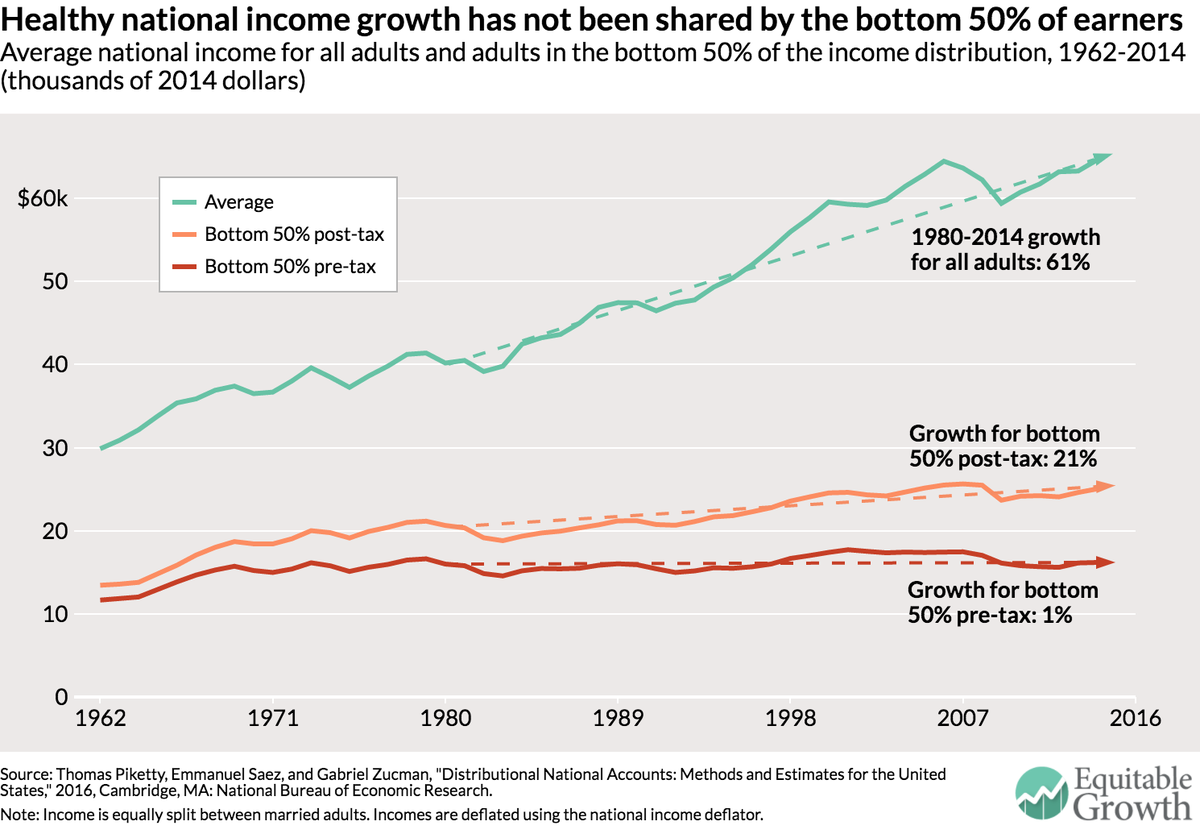In the past, economists and policymakers talked mostly about income redistribution. But recently, the focus has been shifting to wealth inequality.
gabriel-zucman.eu/files/SaezZucm…
You've probably all seen the infographics, charts, videos, etc.
money.cnn.com/2017/09/27/new…
On Twitter, of course, the call is often simpler: "Eat the rich!"
BUT, we should be realistic about what wealth redistribution would be able to actually accomplish.
The U.S. has about $100 trillion of household wealth. bloomberg.com/news/articles/…
That means the top 1% of Americans has somewhere around $40 trillion.
What would Americans in the bottom 80 percent gain out of that?
So that's about $150,000 per person.
Not bad!
It's definitely not enough to retire on.
The answer is that most of our wealth isn't "wealth". Most of it is the income we produce, and consume, from day to day and year to year.
But what we actually consume is much bigger!
Most of what we produce, we consume. The net national savings rate is only a few percent.
Wealth is more unequal, but income is a much bigger deal, especially over the long run.
Not only does that minimize price impact and tax avoidance, but it creates a sustainable income stream.
Give a man the rich, and he'll eat for a day.
Teach a man to combine progressive taxation with a highly productive economy, and he'll eat for a lifetime.
(end)












